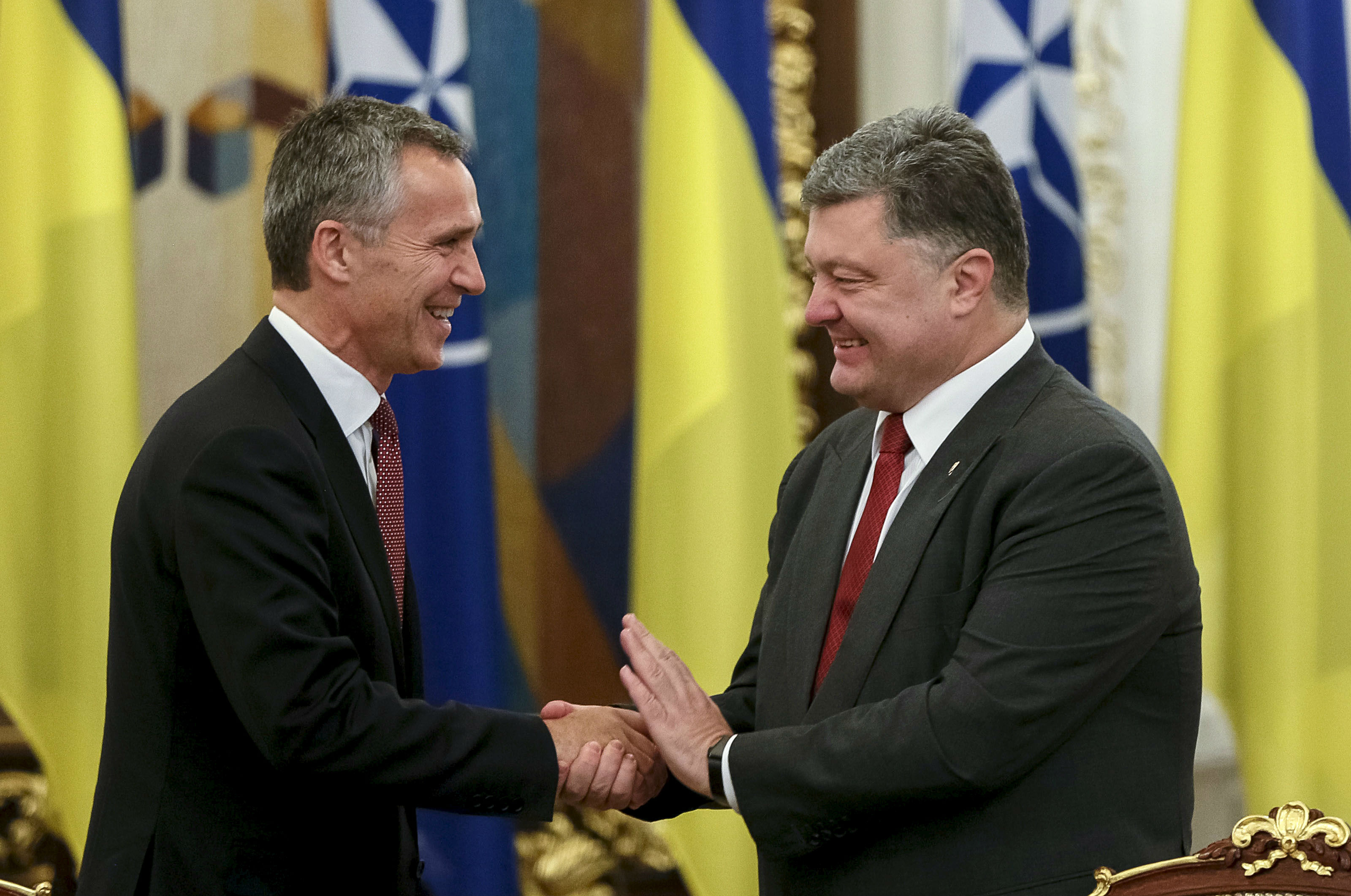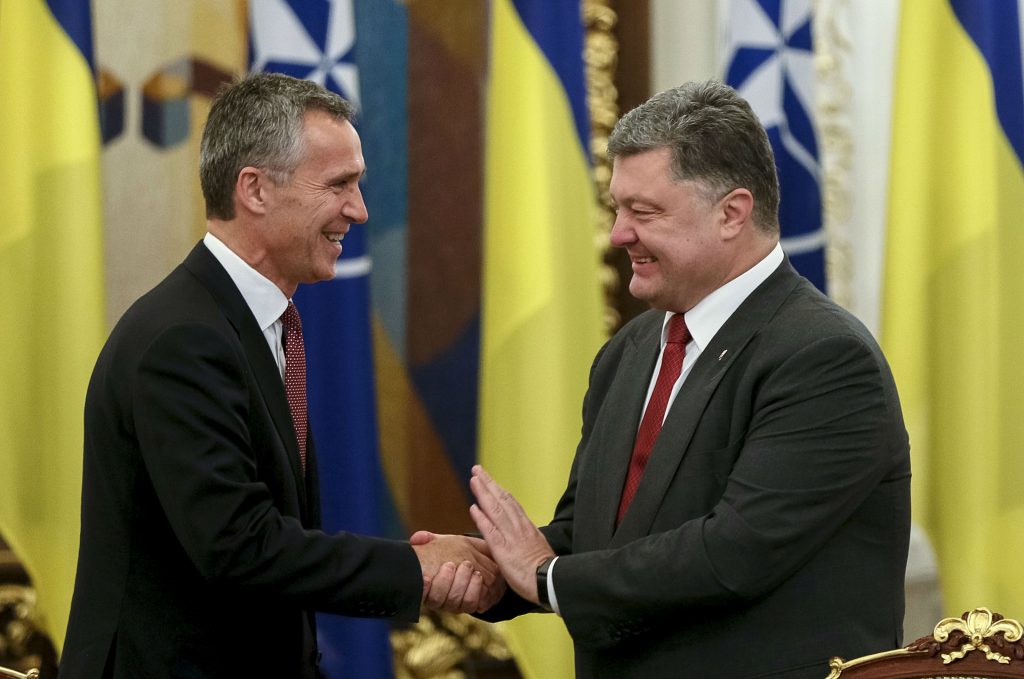
A Reply to Andreas Umland
Andreas Umland writes that it would be senseless for Ukraine to aspire to NATO membership though it is desirable. The main reasons he cites are the dawning realization of the danger and potent threat that Russia presents to both Eastern Europe and the West, coupled with a residual unwillingness to accept the full dimensions of that threat. The paradoxical nature of those reasons does not disqualify his argument. After all, one way to wish away the threat is to minimize it while leaving the burden of defense to those most directly in its path. As Winston Churchill observed, many states in Europe in the 1930s sought to appease the alligator (i.e. Nazi Germany) hoping that someone else would be eaten first and perhaps satiate the beast. But there are more reasons than fear of Russia’s response that inhibit Ukraine’s NATO membership, even though no country needs NATO more and Ukraine’s example embodies why NATO is necessary.
Western audiences regularly encounter a steady diet of Ukrainian failure stories, too many of which are correct. They include the failure to uproot corruption, the venomous infighting and unwillingness to reform that still characterizes Ukrainian politics, the devastation wreaked by war, and multiple problems connected with Ukraine’s defense establishment, all of which are assiduously stoked by Moscow and contribute in no small measure to the West’s mounting disenchantment with Ukraine. If the status quo were to persist in linear fashion into the future, Umland’s analysis would probably be validated.
But the status quo is not immutable. Change is the law of life. Both NATO and Ukraine must and will change to meet their many crises and make progress, while the system that Putin put into place will likely not change. Russia’s next government might be very different because Russia’s future is unpredictable. Few experts predicted Gorbachev or even Khrushchev’s serious, if inconsistent, efforts at reform.
So, what must Ukraine and the West do to help Ukraine make a serious bid for NATO membership?
First, Ukraine must continue along the reform path to justify admission into NATO, and Western governments must hold the government’s feet to the fire. Conditionality is the most effective way to do this, and it was the tactic that the EU used with great success in the past. It means telling Kyiv that if it fulfills the conditions inherent in membership in the EU or NATO, those organizations will facilitate Ukraine’s membership promptly.
Second, next year we will see a new American administration and undoubtedly over time European governments will change too. Those who believe in the centrality of Ukraine to European security and in the threat that Russia poses to European and international security must continue to persuade these new governments that pressure on Ukraine to reform in return for genuine membership will benefit them as well as a Europe whole and free. And if Ukraine justifies those hopes by enacting more reforms in the next six to nine months, it strengthens its case immeasurably.
Critics will claim that conditionality provokes Russia and represents Russophobia and all the other labels applied by Moscow’s trolls to Ukraine’s defenders. Undoubtedly, Russia will resist Ukraine’s membership in NATO. But Russia has already reached what military theorist Carl von Clausewitz calls the culminating point of its capability to attack Ukraine and any new direct attack—as opposed to constant psychological and other forms of pressure that can be expected regardless of Ukraine’s policies—would entail unacceptable risks for Russia. Moreover, it was Ukraine’s weakness not its strength that provoked the seizure of Crimea. While Russia regularly pressures neighboring NATO members, it has not invaded them.
Third, the argument that Ukraine cannot determine its own security lest that upset Russia implicitly accepts Putin’s argument that Russia can only be secure if its neighbors are insecure. Unequal security, Moscow’s real demand, is a demand for empire and empire means war in today’s Europe because former Soviet states like Estonia, Georgia, Latvia, Lithuania, and Ukraine, and former satellites like Poland will resist. Moreover, Russia cannot achieve its security ambitions except by force since it has little to offer except corruption, criminality, and despotism.
The desirability of NATO membership for Ukraine is not open to doubt, as it is the victim of premeditated Russian aggression and direct force. But NATO membership can only ensue if Ukraine finds the resources within itself to drive through a thorough policy of reform in politics, justice, economics, and defense, and the West regains the courage to defend its interests and conviction through credible military, political, and economic support as well as pressure on Ukraine and genuine deterrence of Russia. Given the extraordinary rapidity and scope of sociopolitical change in our time and the necessity for strong Western leadership to surmount the crises of our time, neither of these outcomes is beyond the realm of the possible. More importantly, both are inherently desirable ways to maximize European peace and security, including Russia’s security as well. We may not only hope for such a reciprocal process of change in Ukraine and the West, we must work for it.
Stephen Blank is a Senior Fellow at the American Foreign Policy Council.
Image: Ukrainian President Petro Poroshenko (R) welcomes NATO Secretary-General Jens Stoltenberg before the meeting of national security and defense council of Ukraine in Kyiv September 22, 2015. REUTERS/Gleb Garanich
